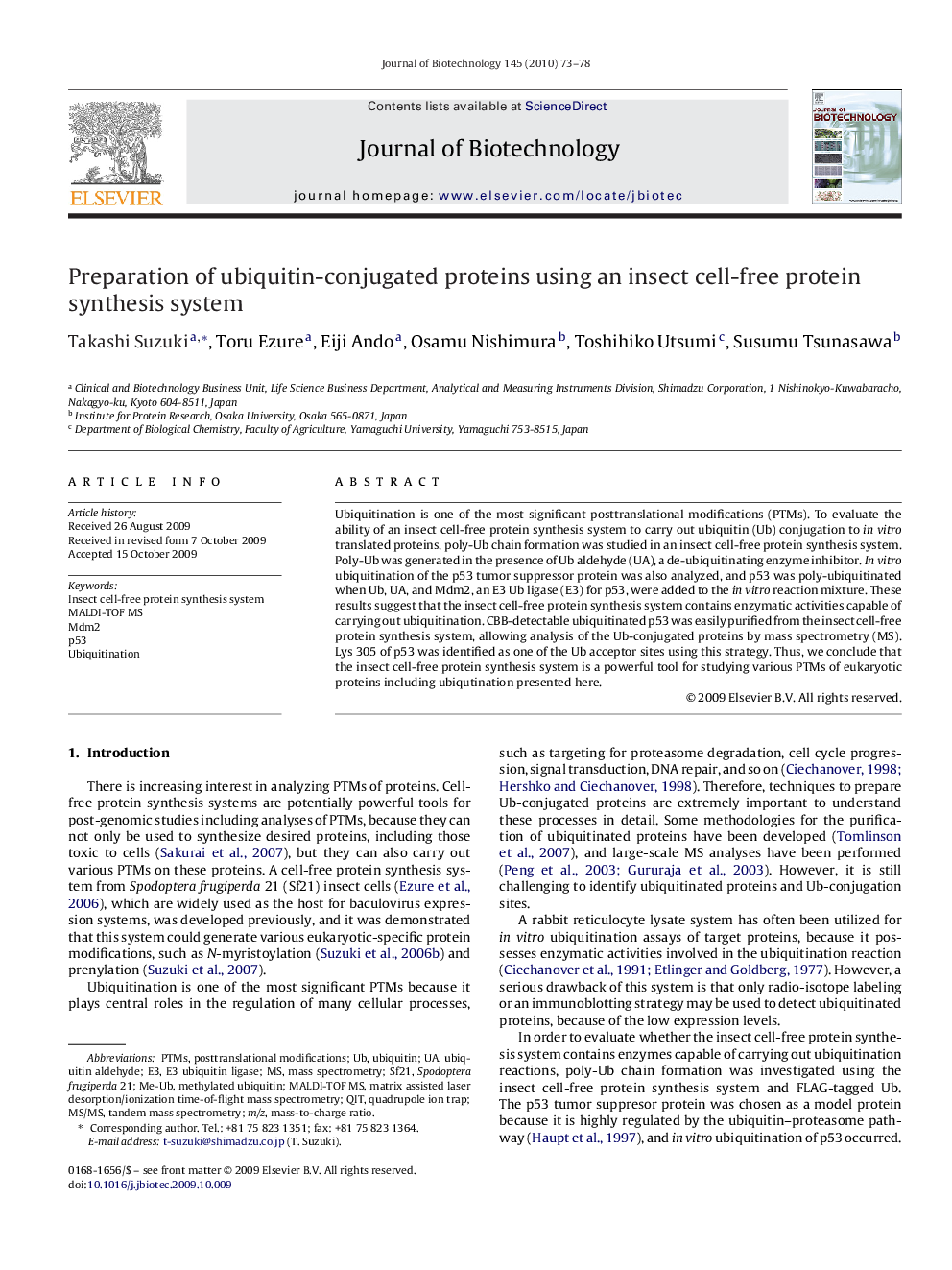| Article ID | Journal | Published Year | Pages | File Type |
|---|---|---|---|---|
| 24576 | Journal of Biotechnology | 2010 | 6 Pages |
Ubiquitination is one of the most significant posttranslational modifications (PTMs). To evaluate the ability of an insect cell-free protein synthesis system to carry out ubiquitin (Ub) conjugation to in vitro translated proteins, poly-Ub chain formation was studied in an insect cell-free protein synthesis system. Poly-Ub was generated in the presence of Ub aldehyde (UA), a de-ubiquitinating enzyme inhibitor. In vitro ubiquitination of the p53 tumor suppressor protein was also analyzed, and p53 was poly-ubiquitinated when Ub, UA, and Mdm2, an E3 Ub ligase (E3) for p53, were added to the in vitro reaction mixture. These results suggest that the insect cell-free protein synthesis system contains enzymatic activities capable of carrying out ubiquitination. CBB-detectable ubiquitinated p53 was easily purified from the insect cell-free protein synthesis system, allowing analysis of the Ub-conjugated proteins by mass spectrometry (MS). Lys 305 of p53 was identified as one of the Ub acceptor sites using this strategy. Thus, we conclude that the insect cell-free protein synthesis system is a powerful tool for studying various PTMs of eukaryotic proteins including ubiqutination presented here.
